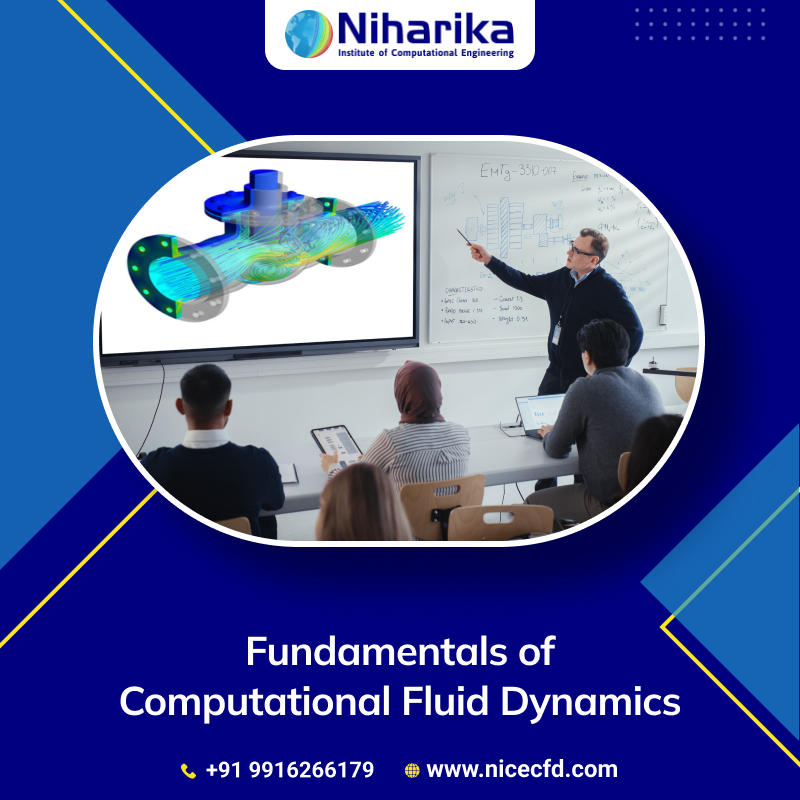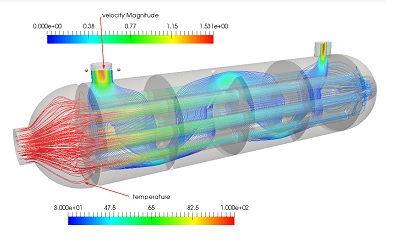The turbine blade design is critical for the efficiency of power generation systems. Computer aided engineering analysis (CAE) enable engineers to understand and optimize factors like fluid dynamics, heat transfer, and structural integrity. Engineers and analysts familiar with one tool, Ansys Fluent or CFX, may find it beneficial to use the other for specific aspects of the simulation. The common user interface within the Ansys Workbench environment facilitates the transition between these tools. However, when compared to Fluent, Ansys CFX is often favored for its expertise in simulating rotating machinery. Using Ansys CFX for turbine blade modelling provides a virtual platform to simulate and analyse fluid flow over blades, heat transfer within the system, and responses to varying operating conditions.
Ansys CFX plays a pivotal role in revolutionizing the design and optimization of turbine blades. Through its powerful CFD simulations, students and engineers can gain deep insights into fluid behavior, heat transfer, and structural integrity. In this blog, we will explore the role of Ansys CFX in modelling turbine blades.
Role of Ansys CFX in Turbine Blade Modelling: A Detailed Analysis
Let us delve into the captivating world of Ansys CFX and explore its significance in modelling turbine blades.
1 Virtual Prototyping
Ansys CFX revolutionizes the traditional approach to design through its role as a virtual playground for engineers. In contrast to the time-consuming and resource-intensive nature of relying on physical prototypes, the software provides a dynamic platform for virtual prototyping. Engineers can efficiently create, test, and refine turbine blade designs within the virtual realm, significantly accelerating the development cycle.
In case you are looking for software for handling various fluid flow scenarios, you can use Ansys Fluent. It uses a segregated solver approach, which can be advantageous for certain types of problems and provides flexibility in handling a wide range of fluid flow scenarios.
2 Fluid Dynamics Mastery
Central to turbine blade modelling is the mastery of fluid dynamics, an area where Ansys CFX excels. The software empowers engineers to conduct in-depth simulations and analyses of fluid behaviors as they intricately interact with turbine blades. From elucidating pressure distributions to capturing velocity profiles, Ansys CFX delivers a comprehensive understanding of fluid dynamics intricacies, enabling engineers to finely optimize blade designs for optimal performance.
3 Heat Transfer Insights
Operating in environments characterized by soaring temperatures, turbine blades face significant thermal challenges. Ansys CFX plays a crucial role in providing insights into heat transfer within the turbine system. This capability proves indispensable for evaluating how blades manage thermal stresses and aids engineers in selecting materials capable of withstanding high temperatures without compromising efficiency.
4 Structural Integrity Analysis
Beyond its prowess in fluid dynamics and heat transfer, Ansys CFX extends its capabilities to encompass structural integrity analysis coupled with Ansys FEA solver. Engineers leverage the software to scrutinize how turbine blades respond to diverse mechanical stresses and vibrations under a spectrum of operating conditions. This ensures the development of robust and reliable designs that can withstand the rigors of real-world applications.
5 Iterative Design Optimization
Ansys CFX stands as a catalyst for innovation through its facilitation of iterative design optimization. Engineers embark on a journey of continuous improvement by adjusting parameters and meticulously analyzing their impact on performance. This iterative process, synonymous with the hallmark features of Ansys CFX, empowers designers to fine-tune turbine blade designs with precision, achieving maximum efficiency and fostering a culture of continual improvement.
Final Thoughts
Ansys Fluent and Ansys CFX are both computational fluid dynamics software products developed by Ansys Inc. While they are distinct tools, they are part of the Ansys suite and can complement each other in certain aspects of turbine blade modeling. However, Ansys CFX is often favored for its expertise in simulating rotating machinery over Ansys Fluent due to several key features and solver capabilities that make it well-suited for applications involving rotating components, such as turbine blades. Should you be looking for an institute that provides the best courses on Ansys Fluent and Ansys CFX, join the Niharika Institute of Computational Engineering. Each of our courses offers a holistic understanding of simulation, making graduates well-rounded engineers.













